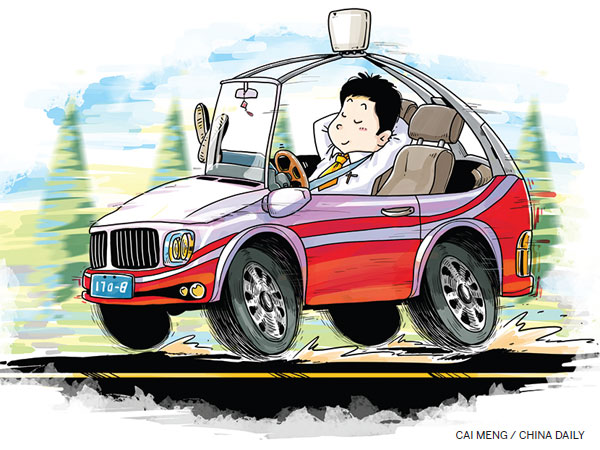
35 years ago it was almost a car-less country; ahead lie driverless cars
When Zhejiang Geely Holding Group started making cars about 15 years ago, its head, Li Shufu, saw cars as little more than a couple of sofas with four wheels attached.
Taking on board that reductionist view, what can we expect this mobile furniture to look like in, say, 15 years from now? Well, these sofas are still likely to be in place, but in two significant ways this motor vehicle will be a generation removed from the cars of today. They will run on electricity, and those seats will have become sofas in a very real sense, something to lounge back on, because the car will be driving itself.
In China that technological leap is all the more remarkable in that it will have come so soon after the motoring revolution of the past 35 years or so in which the number of private cars on the road has grown from just 20,000 to about 125 million now.
And the innovators are not hanging around. In fact, Lex Kerssemakers, chief executive of North American operations of Volvo, which Li's Geely bought in 2010, says he expects to see self-driving vehicles on the roads of Beijing or New York in little more than four years from now.
Boston Consulting Group predicts that by 2025 vehicles with some autonomous features such as highway autopilot or autonomous valet parking will account for 12 to 13 percent of car sales globally, and by 2035 sales of fully autonomous vehicles will account for nearly 10 percent of the market.
Just a few weeks ago an autonomous car owned by Changan Automobile of China completed a 2,000 km trip from Chongqing to Beijing, part of the company's efforts to produce highly automated vehicles.
In California at least 13 companies have been given permission to test autonomous vehicles. Mark Fields, the chief executive of Ford, said in April that the company is in the process of tripling the size of its test fleet to 30 fully autonomous hybrid sedans. Ford has been in the field for more than a decade, he said, and has proven its autonomous vehicles can work "flawlessly" in the dark.
"We are very serious about autonomous driving. Our priority is for our autonomous vehicles (to be) accessible to everyone and not only those who buy luxury vehicles."
Some semi-autonomous functions are already seen in production cars. Mercedes-Benz's all-new E-Class features Drive Pilot, which enables the car automatically to keep a proper distance to vehicles in front, to follow at speeds of up to 210 km/h, and help the driver brake or even change lanes automatically.
Xavier Mosquet, a senior partner in the Boston Consulting Group's automotive division, says autonomous cars that drive at low speeds are likely to be on the road by 2021 or 2022.
"You already have Google cars that are reasonably autonomous in San Francisco, and there are also experiments in Tokyo and Singapore."
New-energy vehicles, including pure electric ones and plug-in hybrids, are already part of people's daily lives in many countries, and experts believe they will eventually overtake or even replace petrol-driven ones.
